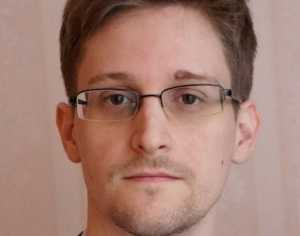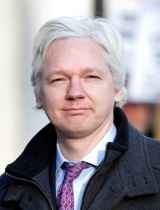The Whistleblower in Film: Hero or Traitor?
There is no knowledge that is not power.
– Ralph Waldo Emerson
While the Emerson quote has been paraphrased in different ways over the years, a universal truth remains that knowledge is indeed power. The more knowledge a person has, the more he or she is able to exploit it as a resource. Of course, the power directly correlates to the number of people the knowledge affects and how harmful it may be. In the case of whistleblowers, people who leak classified information that they are privy to, they are in incredibly powerful positions.
The Controversy of Whistleblowers

There are few positions as polarizing as whistleblowers and in the past several years with the likes of Chelsea Manning and Edward Snowden, the media and the public have been challenged to take sides. While some have viewed whistleblowing as traitorous, others have viewed it as heroic, with even awards for their deeds.
The path of whistleblowers has been of interest to many, and films are no exception. The Fifth Estate and We Steal Secrets: the Story of WikiLeaks have followed Julian Assange and Chelsea Manning with one of the largest breaches in national security. In matters of national security, the public is faced with a juxtaposition between governmental loyalty and an acknowledgement of misdoings.
While critique of the government may seem anti-patriotic, the system has lost many of the fail safes that were in place to ensure proper procedure. The NSA breach of private liberties lacked the transparency that some expect of the government. While Snowden’s actions remain controversial, there is a question of governmental dues and decorum in relations to the media and the public. The commentaries of The Fifth Estate and We Steal Secrets: the Story of WikiLeaks explore the role of the necessity of transparency and the scope of governmental secrecy also apply to Edward Snowden’s case.
Individual whistleblowers’s moralities are imperative to determining an opinion on them. Many of them, Manning and Snowden included, have shown no remorse for their actions, and truly have self-justified them. However, with the subjectivity of individual morality, comes the questioning of their motives. Depending on morals, individual opinions of whistle-blowers can range anywhere from traitor to hero. Is it the government’s role to justify everything that they do, even in the name of national security? Should whistleblowers be punished or lauded? Does it vary on a case by case basis?
The Accountability of Documentaries
In the past several years, documentaries have found themselves in the precarious position of being both a mouthpiece for whistleblowers as well as whistleblowers themselves. Documentaries, however, are more faceless whistleblowers than individuals like Assange or Snowden. If properly done, the documentary allows the public to have a more objective view of the leaked material. By removing an individual with questionable morals and presenting evidence from which the viewer can draw a conclusion, documentaries have changed the way we get leaked information. In this manner they assume the roles of Snowden or Assange and transmute the controversial information.
Among the most popular documentaries of the past decade: Super Size Me, Food Inc., and the Invisible War, documentary filmmakers have taken it upon themselves to address the public with pressing public health concerns. Whereas critique of the government may seem contradictory to patriotism, critiques on institutions partially removed from the political spotlight seem to draw less ire.
With Super Size Me and Food Inc. focusing around the food monopolies and the FDA as well as The Invisible War discussing the Congress-acknowledged problem of sexual assault in the military, the critique is larger on subdivisions of the government or contracted companies. If any critique of the government is involved, it is more of inaction and individual corruption, instead of a duplicity on the larger part of the government. And perhaps these sorts of crimes, sexual assault and not informing people about what they are eating, are viewed as more universal sins. The difference may be more defined by both the illegality of the problems and the bodies that create them. It’s much easier to process a criminal food company than a criminal government.
Film Biases
A whistleblower values truth, but should the truth be told to everyone? In cases of needed widespread awareness like Erin Brockovich’s environmental crusade, almost everyone would agree. But when the truth is being hidden by a larger body, like the government, should the truth be told? There are boundaries and laws in place that whistleblowers have surpassed in feeling a need to share the truth with others. In this, they have the power.

The knowledge that they are privy to gives them power. Perhaps we should examine the motives for whistleblowing. While there are many people who believe that they are doing the right thing, there are also many who enjoy the celebrity of it. Julian Assange, perhaps, is among the most well-known whistleblowers, even more so that Chelsea Manning ever was. The films made about the WikiLeaks controversy portray him as a charismatic, egoistic character. While there may be altruistic beliefs under his persona, Assange has certainly not strayed away from the spotlight, going so far as making very public videos and continuing his critiques of governments.
By exposing the secrets, whistleblowers damage the working power hierarchy and cause questions to arise. In a variety of cases, the knowledge exposed creates a following who ask more questions, pressure for more answers and seek to expose a greater truth beyond the whistleblower’s initial claims. The secrecy of what is exposed seems to raise more questions and there is a conflict between desiring to learn more and trying to maintain the status quo. But the fact that they are subjects of numerous films and documentaries is not only a demonstration of our fascination with them, but also are inability on how to think of them. While Erin Brockovich is celebrated as a woman overcoming obstacles, Julian Assange is portrayed as egoistic and arrogant and in part because of the media and film portrayals, we are swayed on our own personal opinions of them.
While fictional films can take personal liberties in showing character flaws, as in The Fifth Estate with Assange, documentaries have the appearance of being much more objective. The documentaries showcase the facts and testimonies while constructing a narrative that nevertheless does push an agenda. These individual character flaws as well as the target of the leak end up biasing the public. Overall, though there is a certain lauding of their actions to act in opposition to the norm. While these films account for the multitude of reactions, there is an underlying admiration for their inquisitive and at times brave acts that juxtaposes our continued curiosity on the morality on their leak of information.

One of the significant differences between Erin Brockovich and The Fifth Estate is the nature of the secret they are revealing. Erin Brockovich’s is a matter of public health and safety which most viewers would not contend is of the utmost importance. The Fifth Estate, however, revolves around the leak of classified government information which is debatable of the importance to public health and safety. One of the most contended aspects about Snowden’s and Manning’s leaks is the nature of the secrets that they released. Though they showed evidence of government misdeeds that violate the Constitution, was this information critical for public well-being? While The Fifth Estate shows Julian Assange believes that the knowledge Manning has provided is important to be made public, critics of Assange and the film contest the importance and the potential risk of the classified information.
Though films, and media in general, attempt to portray themselves as unbiased, they reflect the post-9/11 America culture that has villainized whistleblowers and viewed them as treasonous. Instead of viewing Manning and Snowden as asserting their first amendment rights, which is how defenders justify their actions, the print media as well as film have examined motives and discussed reasons why they have acted in such manners. The answer is clear: they believe that what they were doing was morally right. While Manning has been treated inhumanely in prison and Snowden has sought asylum in Russia, they stand by their beliefs that their actions were justified.
In the culture of secrecy, with governments actions hidden from public viewing, though, whistleblowers continue to leak information that they view important. And so long as whistleblowers exist, our fascination and film coverage will persist as they walk the line between traitor and hero. They force us to revisit the role of government and empower us with classified information, and we are left to ponder what to do with it.
What do you think? Leave a comment.











Brian De Palma’s “Casualties of War” – based on a true story – is one to watch.
This is a great genre that has produced many marvelous motions pictures. Yet, we hear about all these other genres, but no one speaks of this group of films as a genre. Maybe this is worth thinking about.
I am of the belief that whistleblowing is fine when done in proper ways through the proper channels. Edward Snowden and Chelsea Manning are two different cases as Chelsea was at least brave enough to face the punishment for her actions. If she’d not be lazy in her leak she’d have not faced such a harsh penalty. On to your points in your article, whistle-blowers in film are often demonized or deified depending on the pen holders who script the movie. I doubt that anyone believed a film about Assange with a commercial release would carry any other narrative than “He’s a weasel and a doodyhead.” The way of the world is such that those who stand against us are less than us, unworthy of respect. Whistleblowers in film have their flaws magnified unless their secrets serve some other interest.
Just out of curiosity, what do you mean by “proper ways through the proper channels?” The very act of whistleblowing requires the whistleblower to step outside the realms of normal, law-abiding activity to reveal the information in question, so I’m not really sure what those ways and channels might be.
Without being too detailed. Army personnel can anonymously leak classified documents to members of Congress. What Manning did was release millions of documents she couldn’t have read to the public. Proper vs. Improper.
The Insider might be an exception to your last line.
I could not disagree more. There is a time to jump the chain-of-command. Remember the golden rule: He who has the gold makes the rules.
True, I was very naïve.
Food Inc. is a great example of a documentary that positions itself as a whistle-blower. And I definitely think it was a issue that needed to be told, so I’m glad the filmmakers valued the truth and wanted to open audiences eyes to the harsh realities of our food production. This article made me think of Blackfish too as that film certainly opened a lot of people’s eyes to what was really going at SeaWorld. I like how you pointed out the difference between Assanage and Brockovich and how the media often sways our assumptions. Especially when films come out based on whistleblowers viewers may think they’re getting the whole picture but that’s not always the case as films can change the story to suit their needs. I’m also glad that you pointed out that while documentaries have more of a chance to be unbiased as opposed to fictional films, documentaries do have agendas. Often people equate documentaries with objective realities but docs are just as biased and often times, they should be.
I figure that the line is drawn when the motivations behind the whistleblower’s actions are revealed. As you said, there are figures (like Assange) who expose private information because they think it is noble, but then end up enjoying their time in the spotlight. When that happens, you can’t help but wonder if they’ve lost sight of what they intended to do and chose to embrace the role of celebrity over the role of truth-teller. Conversely, however, there are films like Michael Mann’s The Insider which is all about how Jeffery Wigand had to choose between losing his job and putting his family and himself on the line (he said that he received death threats for whistleblowing) and ultimately choosing to tell the truth about nicotine manipulation in cigarettes. Wigand is much nobler and humble in his actions and therefore comes off more as a Brokovich rather than an Assange. I suppose in a way, to return to the idea of knowledge is power, the difference between a traitorous whistleblower and a heroic one is that the former wants the power all to themselves and the latter wants to give that power to others.
Motive does play a large role in perceptions of whistleblowers.
The Insider is not only one of the best whistleblower movies but one of my all time favorites.
Also, All The President’s Men and Serpico. They all portray the real danger that the whistle blower faces.
I met Victor DeNoble. Class act.
In movies, the whistleblower is often a heroic figure. Shame the politicians don’t see them the same.
“Norma Rae,” that union organisation film with Sally Fields about the shameful, terrible working conditions in the textile industry.
The sort of paranoia that catalyzes the actions of whistleblowers has long been a subject of American films, specifically those produced in the early 70s. A particularly compelling example is Three Days of the Condor, which in the end has Joe Turner, whistleblower, threaten to take his conspiracy story about shady governmental practices to the newspapers. When he is questioned as to whether he has considered that maybe the government has control over the newspapers as well, Turner loses confidence in his mission — the film ends in a freeze frame, Turner looking back in concern at the CIA representative who questioned him, his paranoia encapsulated in the final image. As you say, many post-9/11 films depict whistleblowers as villainous or treasonous, but the negativity imbuing pre-9/11 films about whistleblowers (like Three Days of the Condor) shows that such concerns have a rich history in American films, and deserve study.